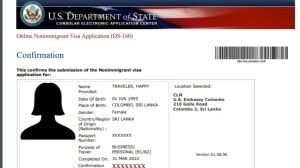GlobalData, a data and analytics company, on Tuesday, said that AstraZeneca can play a crucial role in a rare disease segment in China. In June this year, AstraZeneca’s Soliris (eculizumab) was approved in China for the treatment of adults with refractory generalised myasthenia gravis (gMG) who are anti-acetylcholine receptor antibody positive.
According to GlobalData, MG patients in China will now finally have access to this novel targeted therapy as part of an expanded treatment algorithm.
According to GlobalData’s Epidemiology and Market Size Database, in 2027, the highest number of diagnosed prevalent cases of MG will be in China, with approximately 37% of the total cases across the 16 major markets (Australia, Brazil, Canada, China, France, Germany, India, Italy, Japan, Mexico, Russia, South Africa, South Korea, Spain, UK, and the US), followed by India with 26%, and the US with 7%. The number of total prevalent cases of MG in China is expected to be over 300,000 in 2027.
Soliris has been available in China for indications other than MG since November 2022; it was first approved in the US for MG in October 2017. Currently, disease management for MG in China consists mainly of immunomodulatory therapies like corticosteroids, intravenous immunoglobulin infusions, or symptomatic treatment using immunosuppressive drugs.
“MG patients in China, who had previously failed immunosuppressive treatment and continue to suffer from significant unresolved disease symptoms have finally gained access to an innovative monoclonal antibody therapy, although much later than it was made available in the US for this patient population,” Sasmitha Sahu, Pharma Analyst at GlobalData, said in a statement.
Notably, the approval was based on the REGAIN clinical trial, which did not have a clinical trial site in China. There were no known Chinese bridging studies either in MG. However, clinical trials for eculizumab in other rare disease populations in China are being planned.
In 2018, China released its first formal list of rare diseases, recognizing 121 indications. Recently, in June 2023, China released a draft for its 2023 national drug insurance related guidelines and catalog, which indicated that all drugs, including rare disease drugs approved before June 30, 2023, are eligible for medical insurance negotiations for final inclusion in September 2023.
“Drug development for rare indications like MG has gained significant momentum, with many novel targeted therapies entering the US and European markets. However, these therapies have not begun to reach China until recently. Approvals for orphan drugs in China have now received a stimulus with the country committing to expanding access to rare disease drugs. Reimbursement will only make the drugs more accessible,” Sahu added.
June is celebrated as Myasthenia gravis Awareness month. Notably, AstraZeneca established a rare disease business unit in China in September 2021. The company also has another approved therapy, Ultomiris (ravulizumab LA), a long acting C5 complement inhibitor for gMG which was approved in December 2018 for MG in the US.
Sahu concludes: “The approval of Soliris in China is very well-timed as AstraZeneca can participate in MG-related public events for both patients and healthcare providers to drive awareness for this targeted therapy. The success of Soliris in China can further pave the way for other targeted therapies from the company, such as Ultomiris in China.”








